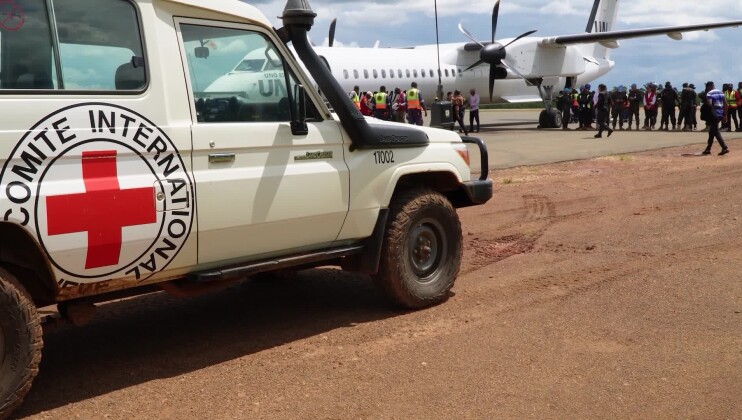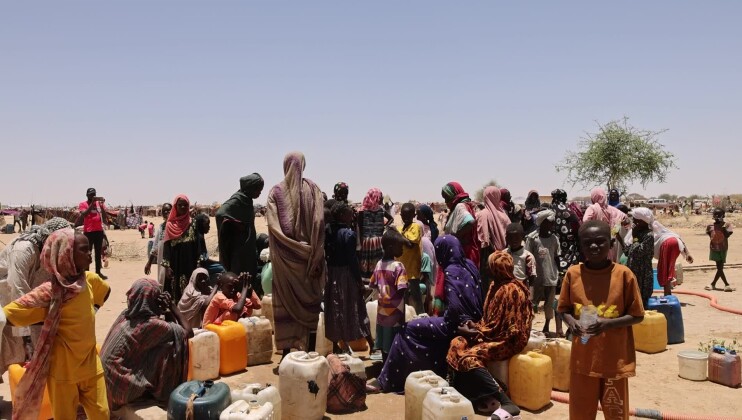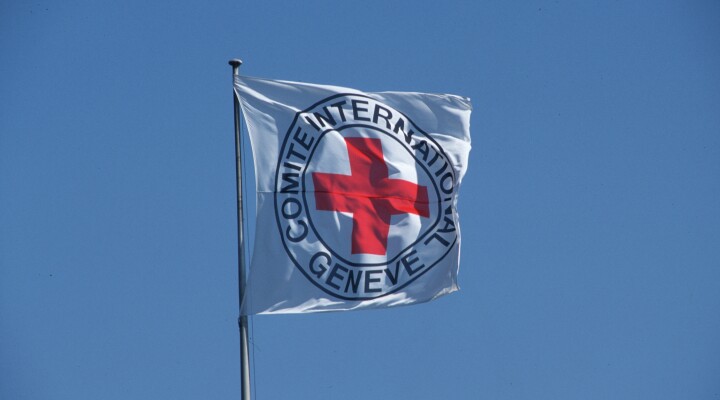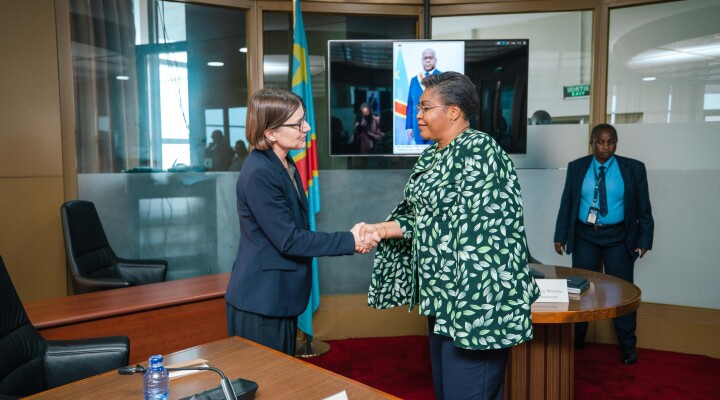Fighting COVID-19 in prisons is difficult; ICRC is working on preventative measures in the largest prison in Lebanon.
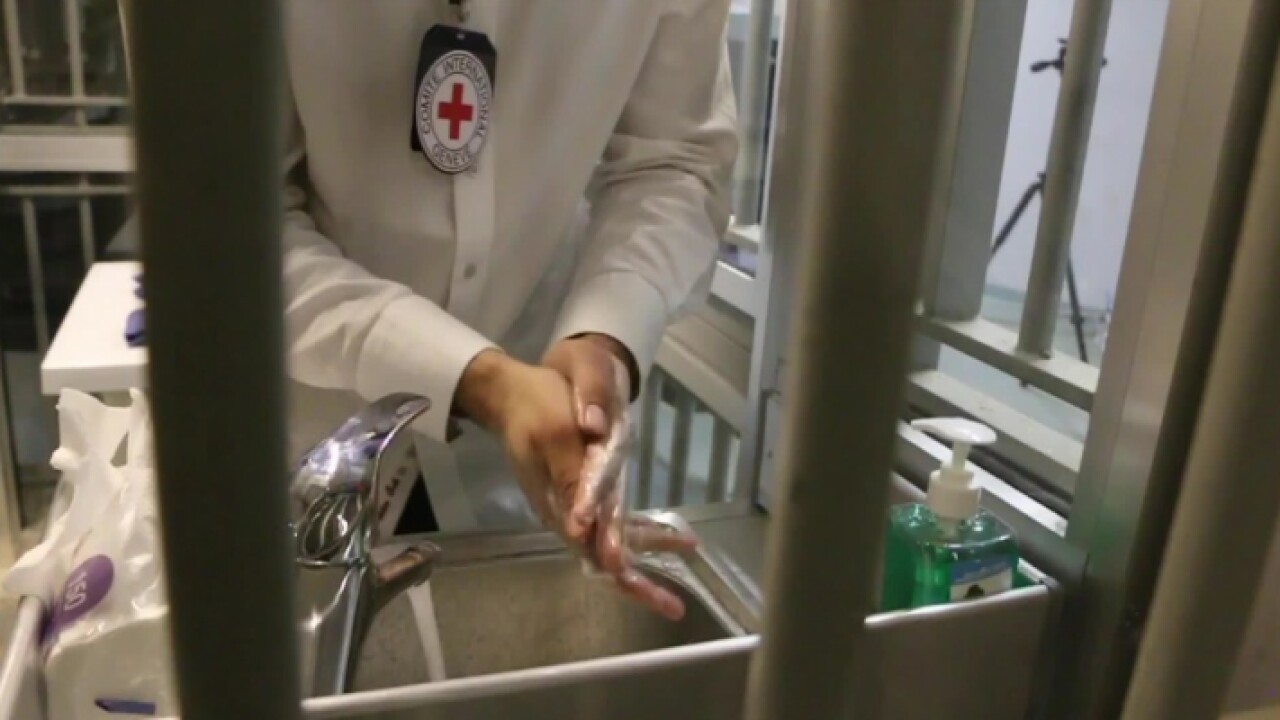
This is a modal window.
Based on past experience, the International Committee of the Red Cross (ICRC) knows that overcrowded, unhygienic and poorly ventilated cells create the perfect conditions for a virus to spread. Detainees are particularly vulnerable to the spread of COVID-19 as clean water can be a luxury and soap may be non-existent in many places of detention.
“My father, for example, suffers from jaundice. We worry about him. I am staying at home. No one visits me or comes into my house. But my father is exposed, very exposed,” said Ali Awada whose father is detained in Roumieh Central Prison in Lebanon.
While no cases have been detected in places of detention in Lebanon, the ICRC is working with detention authorities to support and boost their preventative measures to minimize the risk of contamination and ensure that detainees, prison and health staff are informed about the pandemic and are adequately equipped with relevant materials and technical know-how.
“We are worried, and so are the staff members and the detainees. We are trying as much as we can to avoid the spread of the virus inside the building especially that these buildings are old with weak infrastructure”, said Colonel Majed Al Ayoubi, the director of Roumieh Central Prison.
Roumieh Central Prison is the largest place of detention in Lebanon. It is overcrowded and has more than 4000 detainees. The ICRC is working with the Internal Security Forces (ISF) to upgrade the infrastructure for improved hygiene and create an equipped isolation ward where detainees can be isolated and given necessary medical care if suspected to have caught the virus or are positive patients.
“We believe that detainees have the right to receive the same health care as the community. That is why we set up medical isolation rooms”, said Abdolhaliem Ahmad, ICRC detention doctor
This means that detainees have access to the necessary health care assistance on the premises should an outbreak happen. The ward is also equipped with a swab sampling room allowing for quick, safe and on-site collection of samples that would be sent for laboratory testing.
In addition to Roumieh, the ICRC is supporting 12 prisons under the Ministry of Interior and the Ministry of Defense with personal protective equipment for healthcare workers and staff, with hygienic kits for the detained population, and with cleaning materials for the premises.
ICRC activities in Roumieh central prison include:
· The ICRC installed sinks at the main entrance of the prison compound and at the entrance of each block to provide guards with an easy access to wash their hands in a regular manner.
· The ICRC provided personal protective equipment (gloves, masks, soap and disinfectant) for staff and healthcare workers.
· The ICRC also provided mattresses, medical trolleys, food trolleys and shoes disinfection buckets for use in the isolation ward.
· The ICRC distributed soap for 4200 detainees and other cleaning materials for the premises such as detergents, brooms and waste bins.
For further information, please contact:
Rona Halabi, ICRC Lebanon spokesperson, +961 70 153 928, rhalabi@icrc.org
Sarah Alzawqari, ICRC Middle East spokesperson, +961 3138 353, salzawqari@icrc.org
SHOTLIST
Locations: Roumieh Central Prison, Lebanon / Bir Hassan, Beirut, Lebanon (family of a detainee’s house)
Camera: Charbel Barakat, Miriam Atallah
Filming dates: 16.04.20, 30.04.20, 04.05.2020
Length: 05:40
Format: HD, mp4
On-screen credit: ICRC
Access all
ICRC Ref: 20200507-Lebanon-COVID19_Detention
00:00 Timelapse showing the sky and the barbed wires above the walls of Roumieh Central Prison in Lebanon.
00:08 Construction workers, cutting and fixing steel equipment outside the newly allocated building for quarantine inside the prison.
00:10 Construction worker helping in lifting a steel item outside the quarantine building.
00:15 Construction workers inside the lift’s cabinet
00:18 Construction workers inside the lift’s cabinet pulling a rope with the ventilation tube attached to it.
00:21 Various shots of workers fixing the aluminum and glass of the Anteroom.
00:28 Recovery ward in Roumieh prison, workers removed the cement table to transform the hall into a hospital.
00:32 ICRC staff member walking inside the hall that is going to be transformed into a recovery area inside the Roumieh prison.
00:35 Various shots from inside the windows of the hall
00:40 Electricity work closeup inside the quarantine area.
00:42 ICRC staff members in the finalized Anteroom.
00:46 Fixing the Negative Pressure alarm outside the “samples’ room”.
00:50 Roy Aoun, Engineer at the water and habitat department ,ICRC, trying the automatic aluminum door inside the Anteroom.
00:53 Various shots inside the prison.
01:05 ICRC staff member washing their hands.
01:14 Dr. Abdolhaliem Ahmad, Detention Doctor,ICRC, wearing the PPE inside the Anteroom, separating the clean and infected areas inside the prison.
01:31 Various signs inside the prison.
01:43 Inside of a prison cell.
Soundbite 1: Abdolhaliem Ahmad , Detention Doctor, ICRC
01:46 “Some of the challenges that face medical teams to prevent the spread of such viruses are the lack of ventilation in places of detention, the overcrowding, in addition to the limited access to healthcare services in general.
02:05 Moreover, the general recommendations that apply in the community, like social distancing and staying home, do not apply in places of detention.
02:17 Some detainees are elderly, some suffer from chronic diseases, others have physical disabilities or have certain mental health conditions.
02:33 At ICRC, we believe that detainees have the right to receive the same health care as the community. That is why we set up medical isolation rooms where detainees can have immediate necessary health care assistance on the premises if suspected to have contracted COVID-19.
03:00 We also equipped a swab sampling room where samples can be quickly and safely collected to be sent for laboratory testing without having to move detainees outside Roumieh prison.”
Soundbite 2: Ali Mohamed Awada, Son of a detainee, Bir Hassan, Lebanon
03:10 Roumieh is an overcrowded prison. There are elderly people and there are sick people. My father, for example has jaundice.
03:21 There are large numbers of people in this prison interacting in close proximity, eating from each other’s food and sitting close to each other.
03:29 There are no preventative measures to protect them.
03:34 What worries us is him [my father]. As for me, today, I am staying at home. No one visits me, speaks to me or comes into my house. But he [my father] is exposed. Very exposed.”
03:42 Cut-aways of Ali Mohamed Awada
Soundbite 3: Colonel Majed Al Ayoubi, Roumieh Central Prison Commander
03:54 “We are worried, and so are the staff members and the detainees.
04:00 We are trying as much as we can to avoid the spread of the virus inside the building especially that these buildings are old with weak infrastructure and given that the health conditions in general are poor.”
04:16 We started with disinfection measures from Roumieh’s main entrance all the way to the buildings inside. We entered the buildings and we disinfected all the visiting rooms, the scanner, and the patios.”
04:30 We installed thermometers at each entrance in Roumieh.
04:35 The temperature of the visitor is being taken as well as the guests entering Roumieh.
04:40 Visitors for the prisoners were limited to immediate family members. Only one family member can visit the detainee.”
04:48 Cut-aways of Colonel Majed Al Ayoubi
Soundbite 4: Roy Aoun, Engineer at the water and habitat department ,ICRC, Lebanon
O4:55 “Since Roumieh is the biggest prison in Lebanon, the ICRC, in cooperation with the Internal Security Forces, is implementing precautionary measures in Roumieh like installing additional hand washing points at the entrances of the buildings and setting up
O5:18 a medical isolation ward inside the prison.
O5:24 This ward was equipped to ensure a proper insulation between the safe area and the exposed area.
O5:30 An additional ward was also prepared where recovered patients can stay to avoid their exposure to another infection.”
05:38 Cut-aways of Roy Aoun
05:40 ENDS
